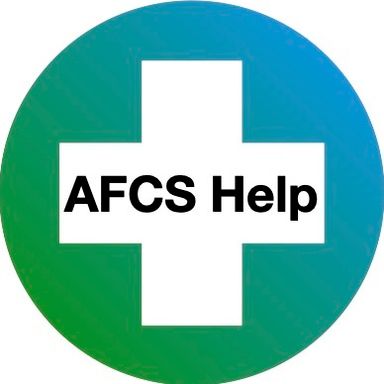Photo by Greg Rosenke on Unsplash
Mental Health Links
Links to mental health services

Above is the poster with the most up to date information I have for Op COURAGE.
Op COURAGE was devised to give a new overarching name for certain veterans mental health services that already existed.
Be aware that while giving it an Op name makes it much easier to understand for military folk, it isn't always the same for civvies. If you go to the GP and ask to be referred to Op COURAGE they might give you a quizzical look (they might not, in which case, props to them.) If they don't know what Op COURAGE is, don't leave; explain you're a veteran with mental health issues, and they'll put you on the right track. Doctors have their own language and so do we.
I totally get how much better it can feel asking for Op COURAGE. I still recoil at using the words "mental health" as I hold the same instinctive prejudice and stigma about it that I'm so afraid is applied to me. But it's something to swallow in order to get help.
The services that make up Op COURAGE are as follows:
- the Veterans' Mental Health Transition, Intervention and Liaison Service (TILS)
- the Veterans' Mental Health Complex Treatment Service (CTS)
- the Veterans' Mental Health High Intensity Service (HIS)
I saw TILS after a charity suggested I contact them. A TILS psychiatrist and psychiatric nurse assessed me and, having diagnosed me with PTSD, referred me to CTS for therapy. I saw them for 6 months, and I am now back in their care.
The service is fantastic. If you're struggling, I recommend reaching out to them.
My two pennies

I'm not a doctor...
Even though I'm trained as a solicitor, I can't offer legal advice as I'm not practicing.
I have never trained as a doctor. I’m definitely not a shrink. I can’t and shouldn’t offer medical advice.
Contact Op COURAGE and / or your GP for medical advice, rather than me.

Veteran State of Mind podcast
While it's not for everyone, 99.9% should apply themselves to listening to the Veteran State of Mind (VSOM) podcast.
(If you really don't like bad language or well reasoned but forcefully expressed arguments, you might be in the 0.1% and it's not for you.)
Geraint Jones's VSOM podcast has transformed my outlook since the summer of 2021 when I was introduced to it. Refreshingly honest (very honest, Gez doesn't hold much back,) listening to the podcast is like being allowed to sit with and listen to the cool people you wish were your mates.
All the, comforting, familiar language of the military is there, and you have a weightlifting, machinegunner historian who's also a bestselling author, chatting with loads of his hard as nails military mates and normalising mental health problems.
It's epic, and I love listening to it. If you want to hear him say in 5 minutes what I've spent months writing a website about, go to: Episode 104 / Rants & Bants episode 5, at 27:27
I was also lucky enough to be invited onto the show to discuss the AFCS (and being a legend) in Episode 189.
The front page for the Veteran State of Mind Podcast is here
I also wholeheartedly recommend Geraint Jones's book, Brothers in Arms, which is not only a really compelling journal of his time in Afghanistan, it's an inspirational book about his journey dealing with PTSD. The audiobook is brilliant, as it's read by him. I laughed so much and cried a lot too. Can't recommend it enough.

Mental health websites
Some mental health websites might be recommended to you, in person or on posters. Some of them might be fine. I can't remember which one it was I looked at but it was scary. Scarier than a mummified wino.

Headspace
One of the RAF charities offers access to the meditation app Headspace, which has been hugely beneficial to me. Once the site's up and running I'll ask if they mind me using their name to help direct you to them. Hopefully there's a similar setup for Army, Navy and Royal Marines.

Still serving
I accept the military needs to be careful with medication due to side effects, which vary. This shouldn’t mean, however, that needing anti-depressants kills your career or stops you working.
But it does. For all the talk by the military of how great it is with mental health, when you press to test, it often fails. I rejoined as a part time reservist on a zero hours contract. They could literally call me now and say, ‘thanks, we don’t need you any more.’ But because I was on the anti-depressant / anti-anxiety Sertraline (above) when rejoining, I needed a medical waiver even to work in an office with no access to weapons. This waiver was initially denied because:
“he is currently being treated for a long standing medical condition which has in the past been adversely affected by his work environment. It is not possible to second guess how his health would be affected… as it would also be subject to factors outside the RAF workplace. His GP reports he is currently responding well to treatment however the nature of his condition leaves him vulnerable to future relapses which could result in significant sickness absence”
Obviously this is rather different to the Veterans UK view, saying I’m fine, get back to work.
Unfortunately, this highlights the chance you have of continuing a flying, air controlling, soldiering, etc. military career if this is the medical branch’s opinion in 2018 of mental health medication.
I don't want to be a mental health party pooper, but I also don't want to pretend that you can easily put your hand up while serving and say "I think I'm more than a bit stressed" and expect your career to be ok.

